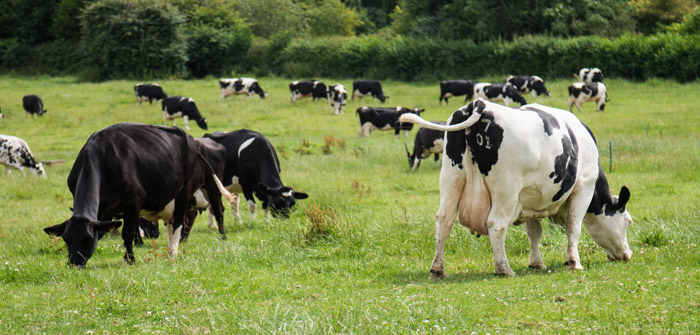Dairy farmers should be taking practical steps in their parlour hygiene management to ensure antibiotic use is reduced to meet future milk marketing opportunities.
Looking at the current status of antibiotic use on farm, Rob Kelly, regional sales director Diversey, who own the Deosan range of hygiene products, said: “As an industry we’re all aware of the concern and growing awareness of antibiotic use on farm – and the need for action to reduce current levels.
“Milk buyers are already introducing measures to encourage reduced use, and farmers should revisit their milking routines to ensure they’re implementing protocols that are compatible with good milk hygiene and udder health.”
Mr Kelly added: “A rigorous udder hygiene programme, carried out with robust well formulated products, is a proven tool to reduce the challenges of the environment responsible for infection and encourage healthier, more productive cows, leading to improved milk quality.
“Post milking teat disinfection plays a proven and crucial role in reducing the risk from mastitis causing organisms and a well formulated product will ensure hydrated skin that can withstand the changeable conditions particularly in the summer.
“But when cows are outside, it can be tempting to cut back on key elements of pre-milking teat preparation, perhaps removing a disinfectant altogether. This not only puts more pressure on the post disinfectant to maintain teat condition, it can also lead to fluctuating bactoscan results when cows are dirtier than normal and exposure of the teat to higher challenges of bacteria can lead to infections.”
Utilising carefully chosen teat hygiene pre and post milking disinfectants will safeguard your business against unnecessary antibiotic use, and all the significant costs that are associated with it, he said.


